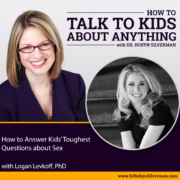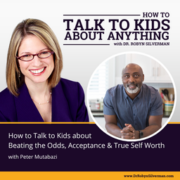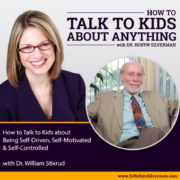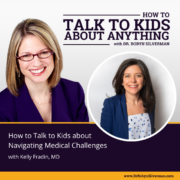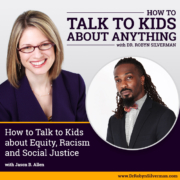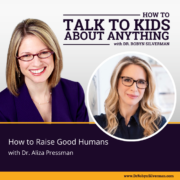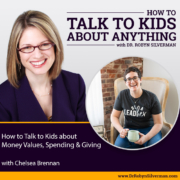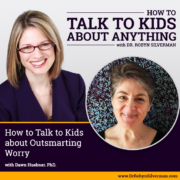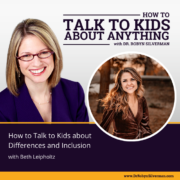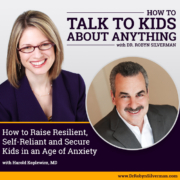Many of us have been there. We walk out of an appointment with our child’s doctor or teacher and we feel concerned—and a whole host of other feelings from fear to anger to sadness, confusion and of course, love. We all hope that our children are healthy and cruise through life fairly unscathed- so when reality hits and we hear that our child has common challenges like ADHD or learning disabilities or more severe challenges like feeding issues, asthma, food allergies, anxiety or depression, we can become alarmed. As we may flip into roles beyond the typical parenting caregiver to medical scheduler, diagnosis researcher, health advocate and more- we may find that money, time, access and a feeling of calm is in short supply. What can we do to cope with and talk with our kids about challenging medical diagnoses and how to proceed through life with one? For this, we turn to Dr. Kelly Fradin.

